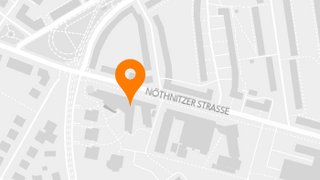Jan-Michael Rost
(MPIPKS Dresden, DE)
Matthew Eiles
(MPIPKS Dresden, DE)

Future of Ultracold and Ultrafast Dynamics
International Workshop
21-25 October 2024
Ultracold and ultrafast dynamics reveal the intricate complexity of light and matter interacting with each other at extreme limits.
In ultracold systems, the interactions between atoms, ions, and molecules can be precisely controlled and manipulated, and quantum correlation and degeneracy play increasingly important roles. This allows access to new states of matter, ranging from exotic few-body systems such as Efimov trimers, ultracold polar molecules, or Rydberg atoms, to collective excitations in interacting many-body systems, such as polarons and dipolar droplets.
Ultrashort intense laser pulses from high harmonic and free electron laser sources probe quantum matter on ultrafast time scales relevant to electronic motion. Perspectives include to reduce the number of photons involved reaching out to quantum science with the promise to create transient states entangling light and matter. This also suggests synergies with cavity physics which achieves intense field interaction with a few photons only.
This workshop on “the Future of Ultracold and Ultrafast dynamics” will bring together young researchers at the PhD candidate or early postdoc stage whose ideas and future research can shape the future of the field. They will have the opportunity to share their research with each other, participate in vibrant discussions, develop ideas and collaborations for immediate projects, and create a scientific network for the later stages of their career. Participants will have space, with twenty-five minute talks and ample time for questions and discussion, to explore the context and motivation of their research. Poster sessions and social activities will allow for additional back and forth in a relaxed atmosphere. A small number of experienced researchers from the ultracold and ultrafast communities will foster a productive atmosphere by sharing their perspectives on the past and future of these topics in colloquium-length talks.
Topics include
Trapped atoms in optical tweezer arrays
Quantum droplets and supersolids
Dipolar atoms and molecules
Ultracold molecules
Bose and Fermi polarons
Rydberg atoms and molecules
Ultracold reactions and collisions
Quantum simulation
High-harmonic generation
Structured Light
Quantum light
Transient absorption
Attosecond Phenomena
Time delays
Multidimensional Spectroscopy
Perspective Talks
Dieter Jaksch (Hamburg)
Ido Kaminer (Haifa)
Markus Oberthaler (Heidelberg)
Hans Jakob Wörner (Zurich)
Invited Talks
Juan Carlos Acosta Mates (Dresden)
Moritz Berngruber (Stuttgart)
Anna Berti (Trento)
Anal Bhowmik (Oklahoma)
Daniel Brady (Kaiserslautern)
Sandra Brandsetter (Heidelberg)
Eva Casotti (Innsbruck)
Arthur Christianen (Zurich)
Aileen Durst (Dresden)
Eugen Dizer (Heidelberg)
Ali Emami Kopaei (Krakow)
Ilias Englezos (Hamburg)
Thomas Hansen (Aarhus)
Tobias Heldt (Heidelberg)
Christian Hölzl (Stuttgart)
Volker Karle (Klosterneuburg)
Hannah Lange (Munich)
Nikolas Liebster (Heidelberg)
Fang Liu (Jena)
Matteo Margoni (Innsbruck)
Krzystof Mysliwy (Warsaw)
Simon Pedersen (Vienna)
Elena Poli (Innsbruck)
Javier Rivera Dean (Barcelona)
Kritsana Srakaew (Garching)
Rohan Srikumar (Hamburg)
Michal Suchorowski (Warsaw)
Anne Weber (London)


